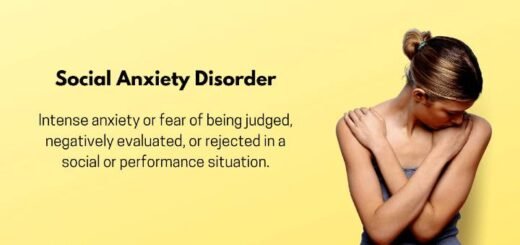Mindfulness Strategies to Conquer Social Phobia
In New Zealand, social phobia, or social anxiety disorder, affects a significant portion of the population, often hindering individuals from engaging fully in social interactions. Mindfulness practices, particularly meditation and breathing techniques, have emerged as effective social anxiety solutions, offering individuals tools to manage their symptoms and enhance their mental well-being. By cultivating awareness and presence, these techniques empower individuals to confront their fears with greater resilience.
Utilizing mindfulness can significantly alleviate the distress associated with social phobia, making it an invaluable resource for those seeking social anxiety solutions. As New Zealanders increasingly recognize the benefits of mental health strategies, integrating meditation and breathing exercises into daily routines can foster a more connected and fulfilling life. For more insights on coping with social phobia, visit this comprehensive guide.
Understanding Mindfulness and Social Phobia
What is Social Phobia?
Social phobia, also known as social anxiety disorder, is characterized by an intense fear of social situations. Individuals experiencing this condition often worry excessively about being judged, embarrassed, or humiliated. This overwhelming anxiety can severely hinder one’s ability to engage in everyday social interactions, leading to avoidance behaviors that can impact personal and professional life.
The Role of Mindfulness
Mindfulness is a mental practice that involves focusing your attention on the present moment without judgment. It encourages individuals to observe their thoughts and feelings while cultivating a sense of acceptance. For those struggling with social phobia, mindfulness can be a powerful tool to help reduce anxiety and enhance emotional regulation. By practicing mindfulness, individuals can become more aware of their anxious thoughts and learn to respond to them in a more constructive way.
Connecting Mindfulness to Social Anxiety Solutions
The integration of mindfulness practices into a treatment plan for social anxiety can yield effective social anxiety solutions. Techniques such as mindful observation and self-compassion can help in reframing negative thoughts and reducing anxiety levels. This shift in perspective is crucial for individuals who often find themselves trapped in cycles of fear and avoidance.
Resources for Support in New Zealand
In New Zealand, there are various resources available for those dealing with social phobia. Organizations like Social Phobia New Zealand provide valuable information, support groups, and workshops focused on mindfulness and anxiety management. Engaging with such communities can foster a sense of belonging, aiding individuals in their journey toward recovery.
Meditation Techniques for Managing Social Anxiety
Types of Meditation
Meditation is a versatile practice that can be adapted to suit various needs. Common forms include focused attention meditation, open monitoring meditation, and loving-kindness meditation. Each type can be beneficial for those with social phobia, but it’s essential to find the one that resonates best with you.
Focused Attention Meditation
In focused attention meditation, individuals concentrate on a single point of focus, which could be the breath, a mantra, or an object. This practice is particularly helpful for managing racing thoughts and anxiety. For someone with social phobia, focusing on breathing can anchor them during moments of heightened anxiety.
Open Monitoring Meditation
Open monitoring meditation encourages a non-reactive observation of thoughts and feelings. This approach can help individuals with social phobia recognize their anxious thoughts without judgment, reducing their power over emotional well-being. It promotes a sense of detachment from the anxiety, allowing for clearer thinking in social situations.
Loving-Kindness Meditation
Loving-kindness meditation involves sending positive intentions toward oneself and others. This practice is beneficial for cultivating self-compassion and reducing feelings of isolation often experienced by individuals with social phobia. By practicing loving-kindness, individuals can foster a sense of connection, which is crucial for overcoming social anxiety.
Breathing Techniques to Alleviate Anxiety
Importance of Breath Awareness
Breath awareness is a foundational practice in both mindfulness and meditation. It serves as a constant anchor to the present moment and can help individuals manage their anxiety levels. By focusing on the breath, individuals can activate the body’s relaxation response, counteracting the physiological effects of anxiety.
Diaphragmatic Breathing
Diaphragmatic breathing, also known as deep breathing, involves inhaling deeply through the nose, allowing the abdomen to expand, and exhaling slowly through the mouth. This technique can be particularly effective for those with social phobia, as it helps to lower heart rate and promote feelings of calmness. Practicing this technique for a few minutes daily can yield significant benefits.
4-7-8 Breathing Technique
The 4-7-8 breathing technique involves inhaling for four counts, holding the breath for seven counts, and exhaling for eight counts. This structured approach can help individuals with social phobia regain control during anxiety-provoking situations. Practicing this technique before social interactions can enhance feelings of relaxation and confidence.
Utilizing Breathing Apps
In New Zealand, numerous apps are available to assist with breathing exercises and mindfulness practices. Apps like Calm or Headspace offer guided breathing sessions that can easily be integrated into daily routines. Utilizing technology can make it more convenient to practice these techniques regularly.
Incorporating Mindfulness into Daily Life
Mindful Routines
Incorporating mindfulness into daily routines can significantly enhance mental well-being. Activities such as mindful walking, eating, or even washing dishes can transform mundane tasks into opportunities for mindfulness practice. By focusing on the sensations and experiences of these tasks, individuals can cultivate a greater sense of presence and reduce anxiety.
Mindfulness in Social Situations
Practicing mindfulness in social situations can help individuals manage their anxiety more effectively. Techniques such as grounding exercises—focusing on physical sensations or the environment—can anchor individuals in the moment, reducing feelings of overwhelm. This practice encourages a shift in focus from anxious thoughts to the present moment.
Journaling for Mindfulness
Journaling can be a powerful mindfulness tool. Keeping a daily journal to reflect on thoughts, feelings, and experiences can help individuals gain insight into their anxiety triggers. This practice can also foster gratitude by encouraging individuals to note positive experiences and interactions, promoting a more balanced perspective on social situations.
Community Engagement in New Zealand
Engaging with community events or groups focused on mindfulness and mental well-being can be beneficial. Many local organizations in New Zealand offer workshops, retreats, and support groups that emphasize mindfulness practices. Connecting with like-minded individuals can also provide valuable support and encouragement.
Challenges and Solutions in Mindfulness Practice
Overcoming Resistance to Mindfulness
Many individuals with social phobia may initially resist mindfulness practices due to fear of vulnerability or self-exposure. Recognizing this resistance is the first step toward overcoming it. Understanding that mindfulness is a personal journey can help individuals approach the practice with an open mind.
Building a Regular Practice
Establishing a regular mindfulness practice can be challenging but is essential for long-term benefits. Setting aside a specific time each day, even if just for a few minutes, can help create a habit. Starting small and gradually increasing the duration of practice can make it feel more manageable and less overwhelming.
Utilizing Guided Practices
For those struggling to maintain a personal practice, utilizing guided meditations or mindfulness videos can provide structure and support. Many resources are available online, including those offered by Social Phobia New Zealand, which can help individuals navigate their mindfulness journey.
Seeking Professional Guidance
If individuals find it difficult to engage with mindfulness practices, seeking professional guidance from a therapist specializing in anxiety can be beneficial. Cognitive Behavioral Therapy (CBT) often incorporates mindfulness techniques, providing a structured approach to overcoming social phobia. This professional support can enhance the effectiveness of mindfulness practices.
Long-term Benefits of Mindfulness for Social Phobia
Enhanced Emotional Resilience
Regular mindfulness practice can lead to increased emotional resilience. Individuals with social phobia often experience heightened distress during social encounters. Mindfulness helps in building the capacity to manage difficult emotions, allowing individuals to respond to anxiety-provoking situations more effectively.
Improved Self-esteem
Mindfulness fosters self-acceptance and compassion, which can improve self-esteem. Individuals with social phobia frequently engage in negative self-talk, which exacerbates their anxiety. By practicing mindfulness, they can cultivate a more compassionate inner dialogue, leading to enhanced self-worth and confidence.
Better Social Interactions
As individuals become more comfortable with mindfulness, they may find it easier to engage in social interactions. This newfound ease can lead to more fulfilling relationships and greater social satisfaction. Over time, this positive reinforcement can help diminish the fear associated with social situations.
Ongoing Support and Community Resources
In New Zealand, ongoing support and community resources are essential for sustaining mindfulness practices. Continued involvement with groups focused on mindfulness and mental health can provide motivation and accountability. Leveraging local resources can enhance individuals’ journeys toward improved mental well-being and social engagement.
FAQs
What is social phobia and how does it affect daily life?
Social phobia, also known as social anxiety disorder, is characterized by an intense fear of social situations where one may be judged or scrutinized by others. This fear can lead to avoidance of social interactions, impacting relationships, work performance, and overall quality of life.
How can mindfulness help alleviate symptoms of social anxiety?
Mindfulness practices, such as meditation and deep breathing techniques, can help individuals with social anxiety by promoting present-moment awareness. This focus on the here and now can reduce overwhelming feelings of fear and self-consciousness, making social interactions more manageable.
What types of meditation are effective for social phobia?
Various types of meditation can be beneficial for social phobia, including mindfulness meditation, loving-kindness meditation, and guided imagery. These practices encourage relaxation, self-compassion, and a greater sense of connection to others, which can be particularly helpful for those struggling with social anxiety.
How do breathing techniques support mental well-being for those with social anxiety?
Breathing techniques, such as diaphragmatic breathing or the 4-7-8 method, can help reduce physiological symptoms of anxiety, such as increased heart rate and shallow breathing. By calming the body and mind, these techniques can create a sense of control during social situations, making them easier to navigate.
Can I practice mindfulness and meditation on my own?
Yes, many individuals find success practicing mindfulness and meditation on their own. There are numerous resources available, including apps, guided videos, and books focused on social anxiety solutions. Starting with just a few minutes daily can lead to significant improvements over time.
What are some simple mindfulness exercises for beginners?
Beginners can try simple mindfulness exercises such as body scans, mindful walking, or focusing on their breath for a few minutes. Engaging in these practices regularly can enhance awareness and decrease anxiety, ultimately fostering a greater sense of ease in social situations.
How long does it take to see improvements with mindfulness practices?
The timeline for seeing improvements varies by individual, but many people report feeling some relief from social anxiety symptoms within a few weeks of consistent mindfulness practice. Regular engagement in meditation and breathing techniques can lead to long-term benefits and a more resilient mindset over time.
References
- Social Phobia Support – New Zealand – A comprehensive resource providing support and information for individuals dealing with social phobia, including coping strategies like mindfulness and meditation.
- Mindfulness Meditation and Social Anxiety Disorder: A Review of the Evidence – This article reviews the effectiveness of mindfulness meditation in alleviating symptoms of social anxiety disorder, highlighting various studies and outcomes.
- How Mindfulness Can Help with Social Anxiety – An insightful article discussing how mindfulness practices can be beneficial for individuals struggling with social anxiety and practical tips for implementation.
- Meditation for Anxiety: How Mindfulness Can Help – A detailed guide on the role of meditation in managing anxiety, including specific techniques that can help those with social phobia.
- Mindfulness for Social Anxiety – This resource explores how mindfulness practices can reduce social anxiety and offers suggestions for mindfulness exercises tailored to social situations.




